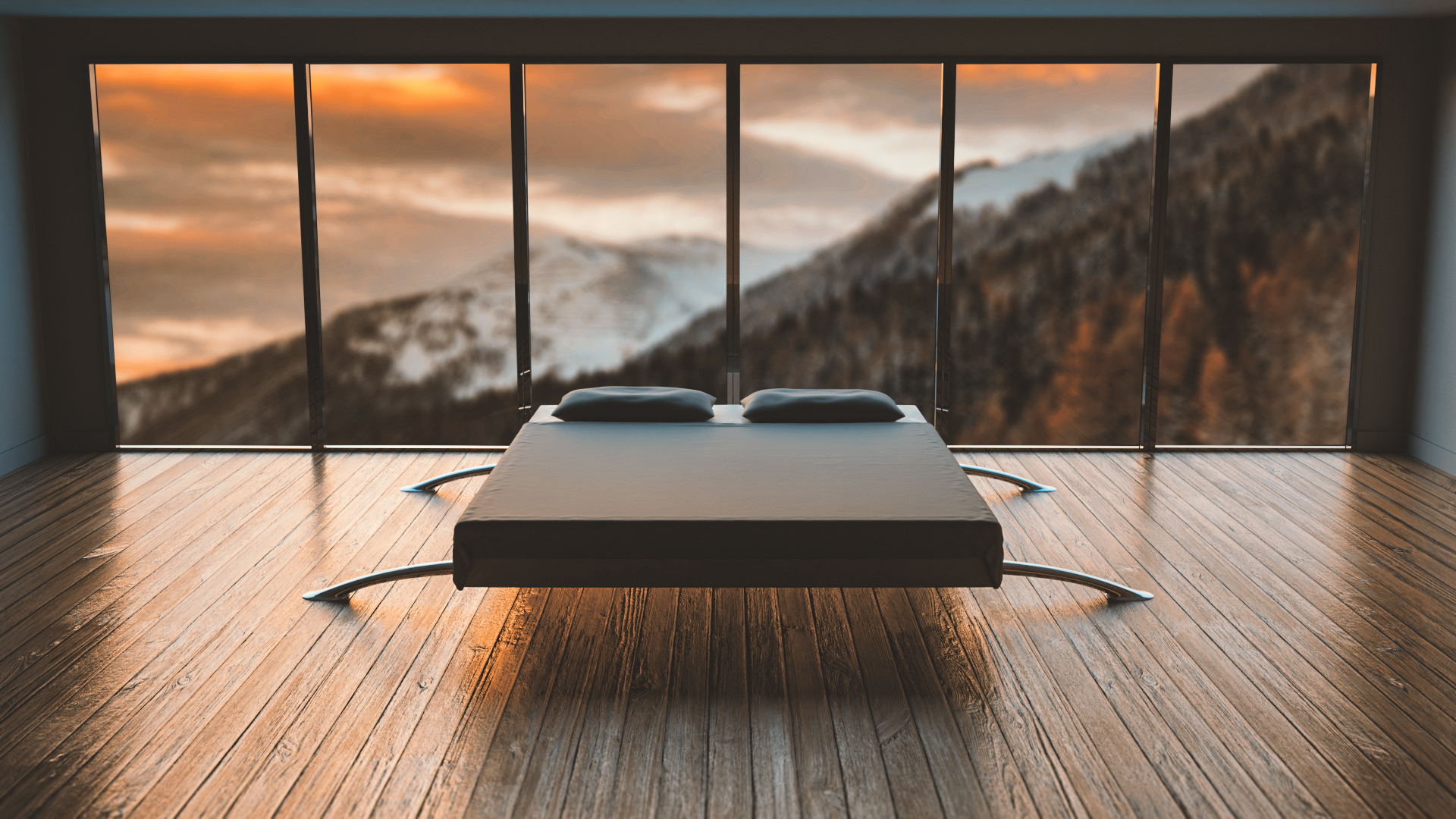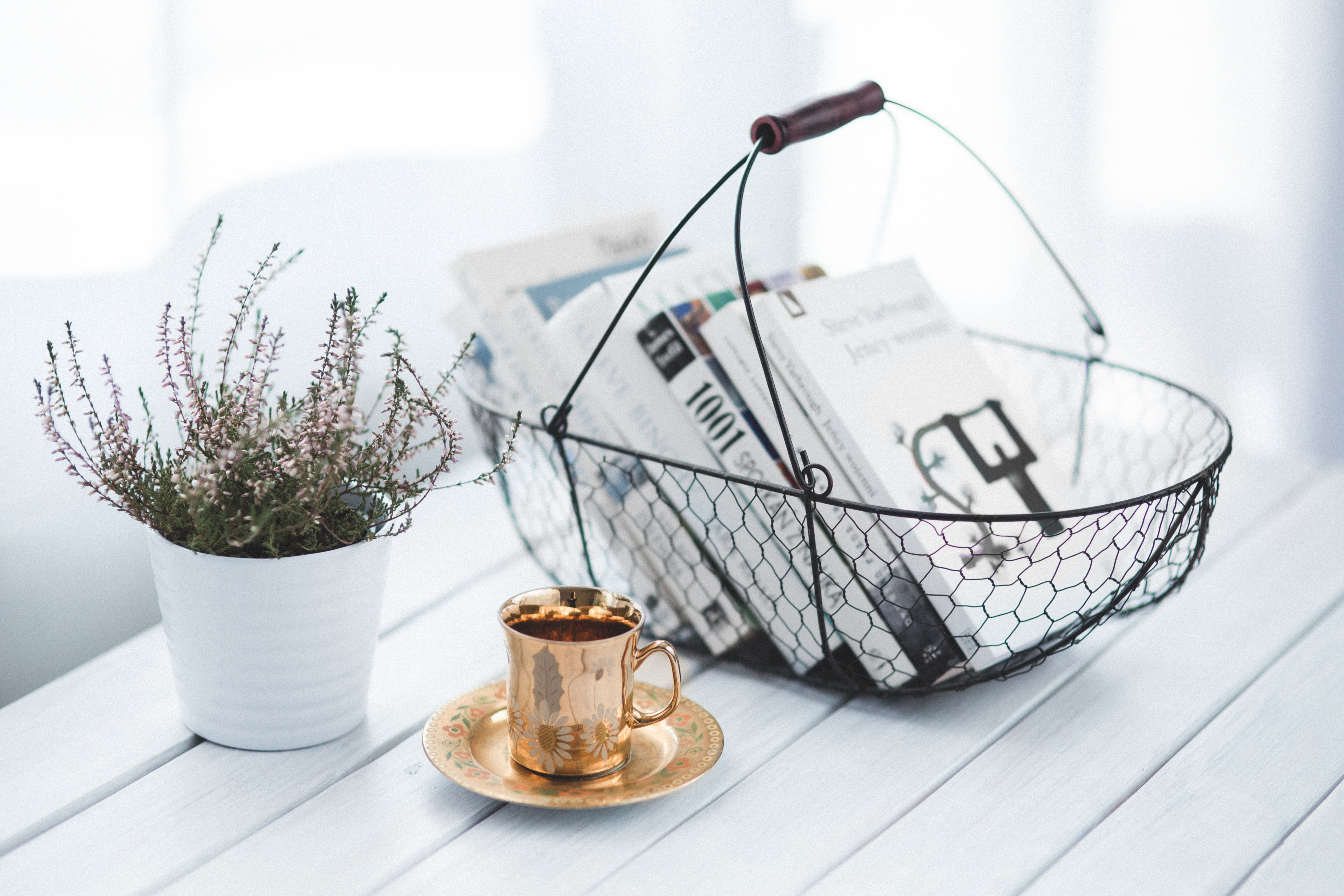Rethinking the Ordinary: Could You Be a Minimalist?
A Tiny Revolution
If you’ve been keeping your ear to the ground, and your eyes firmly trained on Netflix, you may have noticed in recent times lifestyle concepts like Hygge, Minimalism, and Tiny Houses being batted around the Zeitgeist.
All of these offer alternatives to the widely accepted consumption-filled modern lifestyle, but what is so appealing about alternative ways of living, and why now?
Investigative journalist Jacques Peretti in his recent interview with Russell Brand (Under the Skin) discusses how the conscious decision to live alternatively can serve as a modern day form of revolt against a capitalist society. In the episode ‘Beyond Conspiracy – The Terrifying Truth Of Corporate Power’ Brand and Peretti joke about a rising group of millennials growing carrots in their front lawns as an attempt to save the planet.
But on a more serious note, the two agree that such changes in our lives on a micro level can indeed be a tiny revolution against a culture saturated in consumerism, and increasingly devoid of meaning, happiness and intentionality.
Minimalism; an Antidote to the Modern Condition?
Applying principles of minimalism to our lives could be one way to start finding meaning, intentionality and indeed happiness and contentment in our everyday living.
In 2011, life-long friends Joshua Fields Millburn and Ryan Nicodemus walked away from high-flying corporate jobs, turning their backs on six-figure salaries, luxury cars and sizable real estate to adopt the principles of minimalism. And the principles stuck. So much so that they branded themselves The Minimalists, setting up their own website of the same name, penning 3 books, creating a podcast, a documentary and a tour of the US and Canada called Less Is Now.
Perhaps what is so appealing about the Minimalists is that they offer a practical alternative in an age of debt, dissatisfaction and diminished power.
We are continually fed the narrative that debt is a fact of modern life, as inevitable as death and taxes and now encouraged instead of warned against. As a result, many of us find ourselves in the same boat as The Minimalists did – although perhaps not on six-figure salaries. Certainly, though spending beyond our means, accumulating overwhelming amounts of material, and finding ourselves in debt, are all familiar staples of modern life.
For The Minimalists, the lifestyle change was about shedding excess. Excess which caused anxiety, depression, debt and dissatisfaction. Once the excess was gone, space opened up. Removal of physical, psychological and financial clutter meant freedom and space to embrace more meaningful aspects of life that they name as relationships, contribution, community and health.
There is definitely something intriguing about these two guys stripping it back to the bare necessities. And yes, you might find their apparent hug-not-handshake policy a little over-enthusiastic and their houses alarmingly clinical. But what if we changed our relationship with money and material wealth, to make room for what is more valuable?
Can You Live Like a Minimalist in Your Flat Share?
While many aspire to property ownership, renting and flat sharing are two things that can actually help to cultivate a minimalist lifestyle. Both promote principles of minimalism such as removing debt and encouraging community, contribution and human connection. Meanwhile, limited space will mean that you are forced to shed some excess clutter and be more intentional about what you buy and own.
Jaques Paretti notes in his recent book that in 2016 ‘the average American family owed $16,061 on credit cards’ and carried an overall debt of $40,000. Alarmingly he points out that English families are in exactly the same position, and that ‘the average British family accrued more debt in the last three years than any other period in history’.
The common source of debt here is obviously the mortgage, and while perhaps not being inherently a bad thing, opting out and choosing to rent is one way of being sure to spend within our means. Renting can relieve the feeling of being tied down and tethered to a particular lifestyle, and open up possibilities of living in new places, with different people.
Community and Contribution
Flat sharing can be a great opportunity to experience community, to welcome new relationships and prevent loneliness. And, once the excess material clutter is removed, physical space is created – not only relieving anxiety and stress but opening the space up for social gatherings. Communal areas could be used as spaces to hang out, sit together and eat together instead of being used for storage.
Here are some practical tips inspired by The Minimalists that could help you simplify your life, and make room for things that add value! 
Minimize Clutter:
The Minimalists seemingly love the word ‘overwhelm’ – so much so they dedicated a whole podcast episode to it. And they’re not wrong to highlight its importance. While the gradual eradication of cash is making for convenient and pain-free spending, this, combined with 24/7 access to one-click shopping results in the accumulation of stuff. And, while we may think these material goods improve our quality of life, the inevitable clutter is actually detrimental to our health. Studies have shown that clutter is a cause for stress and anxiety, while having too much stuff takes away space that is vital for our wellbeing.
The Minimalist’s motto to ‘love people and use things – because the opposite never works’ nicely underlines their values of shedding excess in order to make room for community and a fulfilled life in one delightfully pithy expression.
The ‘Minimalism Game’:
The minimalism game is a helpful way to stay motivated on the path to a less cluttered life! It is pretty simple, as The Minimalists explain. You find a friend prepared to join you, (or even your flatmates if they are willing!) and challenge each other to get rid of stuff over 30 days. On day one, you get rid of one item, on day two, two items, day three, three items and continue like this for 30 days.
Yes, that means on day 30 you must rid yourself of 30 excess items. It sounds hard but many of us have to look no further than that cupboard of doom where we shove unwanted Christmas presents or things we have no use for.
Be sure to donate and recycle where possible – what doesn’t add value to your life may be of worth to someone else’s. The game can be played again and again until you feel suitably de-cluttered.
The ‘20/20 Rule’:
The Minimalists describe this as a way to rid yourself of those ‘just-in-case’ items. The rainy-day objects that collect dust but you can’t bear to part with, for fear that one day you might really need them!
Apply the 20/20 rule: If a said item could be replaced within 20 minutes (from your current location) for £20 or less, you can say a guilt-free goodbye to the offending just-in-case item.
Capsule Wardrobe:
In their documentary, The Minimalists refer to Project 333, a challenge created in 2010 by Courtney Carver who, like them, felt the need to simplify her life and rid herself of excess clutter and stress to improve her quality of life.
Her challenge to you is simple: dress with 33 items or less for 3 months.
The challenge is not designed for people to experience deprivation or to have too little, but it is to help create a capsule wardrobe that consists of a person’s favourite items. The key is to choose your favourite pieces, but ensure that they can complement each other and be mixed and matched for work, play and beyond.
Once the 33 items are chosen, the rest of your fashion inventory should be put out of sight for the next three months. The idea is that you can then begin to experience the benefits of shedding excess and living more intentionally.
In choosing a collection of 33 pieces including accessories, footwear and outerwear, the need to impulsively and regularly shop to keep up with fleeting and unsustainable trends is removed.
Not only will you start to save cash from impulsive purchases, time spent continually shopping, and stress at having too much choice and ‘nothing to wear’, you will free up vast amounts of space!
From the Horse’s Mouth:
Read much more from The Minimalists here.
Join the Project 333 community here.



